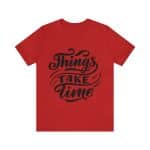Functional Freeze. It’s an interesting concept. In life, there are always going to be challenges. Some are easy to navigate, and others not so much so. But sometimes, these obstacles can create a mental roadblock where we feel stuck and unable to move forward. But what if we could turn this Functional Freeze into an opportunity? Let’s explore how to do just that!
What Is Functional Freeze?
Imagine your mind as a computer that suddenly freezes up – only it is happening in your mind. It’s what Functional Freeze feels like; our thoughts become jammed, and we can’t proceed. It’s a situation that might occur to any of us, regardless of how skilled or ambitious we are. Whether we’re facing stress or a complex problem, this mental standstill is a common and natural response. It’s not a sign of weakness but a human reaction to life’s challenges. Many times, the obstacle is the path that leads us forward.
Factors That Impact Functional Freeze
Functional Freeze isn’t just a random occurrence; specific triggers can lead us to reach this mental standstill. Understanding what lies behind this freeze is the first step toward overcoming it. Let’s dive into some common factors that might cause Functional Freeze, so we can better equip ourselves to navigate these mental roadblocks.

Fear Of Failure – The dread of making mistakes or not meeting expectations can be paralyzing. It’s not merely the fear of doing something wrong; it’s the heavy weight of what those errors might mean about us. This fear can be so overwhelming that it halts our progress entirely. We might avoid taking risks or trying new things because we fear failing.
By recognizing this fear and understanding that failure is often a part of growth, we can overcome this barrier and move forward confidently.
Feeling Overwhelmed – The modern world often bombards us with endless tasks, choices, and responsibilities. When this flood of information and demands becomes too much, we might stall out with indecision. It’s like standing at a crossroads with countless paths, unable to choose a direction. This feeling overwhelmed sensation isn’t just about having too much to do; it’s about the pressure to make the right choices under a time crunch.
By focusing on and prioritizing essential matters, we can navigate the chaos and regain control, turning that sense of overwhelm into a path toward success.
Lack Of Confidence – Self-belief and confidence is a powerful fuel for ambitions but can lead to Functional Freeze when missing. If we don’t believe in ourselves, our abilities, or our worth, we may find ourselves stuck, unable to take the next step. Doubt creeps in, and the voice in our head telling us we can’t do it grows louder.
Our confidence levels don’t always reflect our abilities but rather a mental barrier holding us back. By cultivating a positive self-image, seeking support from those who believe in us, and taking small, achievable steps toward our goals, we can rebuild our confidence and break free from the freeze.
FAQ on Functional Freeze
The ‘freeze’ response is a physiological reaction that occurs in response to a perceived threat when the initial ‘fight or flight’ responses are not viable options. It is characterized by a temporary immobilization or sensation of being “frozen.”
When the ‘fight or flight’ response isn’t enough to deal with a threat, the nervous system can trigger the ‘freeze’ response. This is mediated by the parasympathetic nervous system, specifically through the dorsal vagal complex. It causes a drop in heart rate and blood pressure, leading to a state of hypervigilance and immobility.
During the ‘freeze’ phase, the body might become very still, almost as if playing dead, which can be a defensive strategy against predators. There’s often a feeling of cold as blood flow is redirected to vital organs, and the release of endogenous opioids can numb pain and emotion, which is a protective measure.
Yes, the ‘freeze’ response is common and is part of our evolutionary heritage. It can be seen in the animal kingdom and is an instinctive reaction to a situation where there is no clear path to escape or victory.
During the ‘freeze’ phase, the body might become very still, almost as if playing dead, which can be a defensive strategy against predators. There’s often a feeling of cold as blood flow is redirected to vital organs, and the release of endogenous opioids can numb pain and emotion, which is a protective measure.
Yes, the ‘freeze’ response is common and is part of our evolutionary heritage. It can be seen in the animal kingdom and is an instinctive reaction to a situation where there is no clear path to escape or victory.
Strategies To Break Through Functional Freeze
Functional Freeze might seem impossible to overcome, but it doesn’t have to be. The key is knowing how to approach it, and there are practical strategies that can help us navigate through the freeze and find our momentum again. Let’s explore some simple but effective ways to break through:
Breathing Exercises: Pause and breathe deeply. Breathing exercises are powerful and calming. When we feel centered, we see things more clearly and approach challenges with a focused mind.
Break Tasks Into Smaller Steps: If the goal or big picture feels overwhelming, breaking it down into smaller, manageable pieces can make it much more approachable. Each small success builds confidence, paving the way to more significant achievements.
Seek Support: We don’t have to face our challenges alone. Talking to friends, family, or mentors who encourage us can lift our spirits and give us the strength to move forward.
These strategies aren’t just about overcoming Functional Freeze; they are tools to empower us, helping us build resilience and confidence in all areas of life.
Turning A Freeze into Freedom
Functional Freeze doesn’t have to be an obstacle. It’s a sign that we must pause, reflect, and change our approach to break free from the hold. By understanding what it is and using strategies to break through, we can turn Functional Freeze into an opportunity for growth.
So next time you find yourself stuck, remember: You have the power to move forward. Believe in yourself and turn that obstacle into an opportunity!
Note to all readers: Don’t be hard on yourself if you feel stuck. Reach out to friends or professionals who can help. You’re not alone, and there’s strength in seeking support.
Updated 11/06/2023








